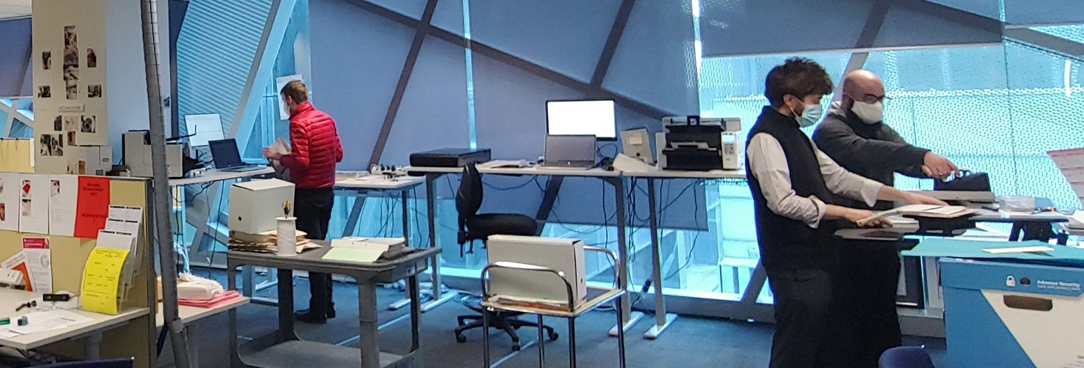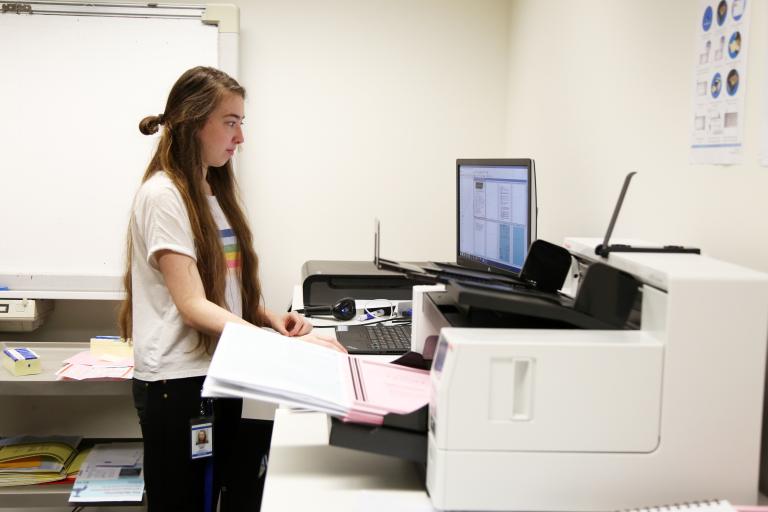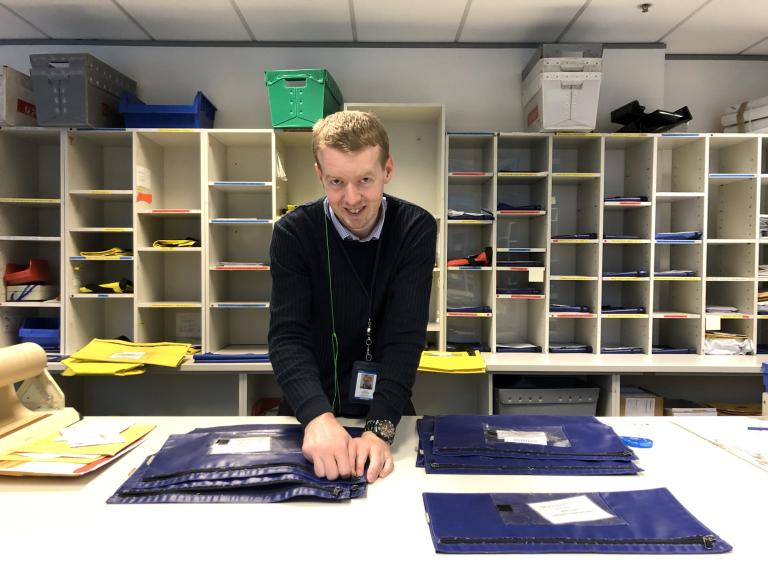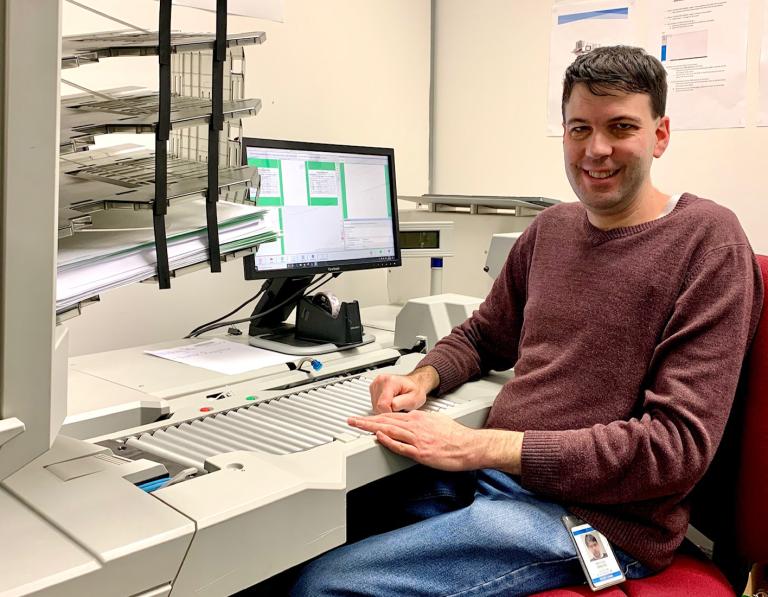
Author: Natasha Cantwell
Communications & Public Programming Officer
The need to go digital has never been greater for Victorian Government Agencies. Accessing hard copy records and mail, as well as printing and sending physical mail, poses a real challenge to the teams across the state who have been working remotely since March. To help support Victoria’s coronavirus (COVID-19) response, the Department of Health and Human Services (DHHS) has launched a Digitisation Office.
The Digitisation Office
The Digitisation Office has the capacity to provide scanning and printing services, in accordance with Public Record Office Victoria (PROV) standards, for customers across the whole of Victorian Government. The Digitisation Office is already digitising up to 1,000 mail items a day for the DHHS and is distributing those records via secure SharePoint document libraries to teams across the state. Large numbers of hardcopy files and documents are also being digitised with strict quality assurance processes in place. And to further enable remote working, the office has set up a printing service, where staff can easily request document printing and posting.
As well as providing essential services, this new initiative has strengthened the department’s commitment to providing employment opportunities for people on the autism spectrum. The Digitisation Office is supported by the RISE Program, which was established by DHHS in 2017 to recruit people on the autism spectrum into records management roles. The unique skills and capabilities of RISE participants, including their attention to detail, ensures that the work produced by the Digitisation Office is of a consistently high standard.
The RISE Program
RISE at DHHS provides an alternative recruitment process, ongoing support for new employees, their team leaders and managers, as well as autism awareness training for co-workers. As Chris Hofmann, Manager of Records Management at DHHS points out, the opportunities RISE creates benefits both the new recruits and DHHS:
“I strongly believe that any organisation delivers better and more meaningful services or products when their workforce reflects the community they serve. As government employees, we have a responsibility to ensure the best possible people be recruited for any given role. People on the autism spectrum can bring unique skills and capabilities making them the perfect candidates to address a lot of requirements in and outside of government.”
However, despite their potential, the unemployment rate for people with autism in Australia is over 34 percent (ABS 2018). RISE at DHHS is working to shift negative perceptions around hiring people on the autism spectrum, and to identify and remove any barriers, both in the recruitment process and during employment. For example, instead of a traditional job interview, applicants are given a two to six-week paid training and assessment period. And while working, RISE participants are permitted to use headphones to manage auditory stimulation. They are also given the flexibility to work at their own pace, without the pressure of artificial stressors such as Key Performance Indicators (KPI).
The RISE Program also helps employees with career planning and seeks out suitable secondment and advancement opportunities with teams across Victorian Government. A partnership with the Department of Environment, Land, Water and Planning saw four RISE team members transfer for a three-year term at a higher VPS grade. The feedback from participants is that the RISE Program has improved their mental and physical wellbeing and made them feel confident about their future career prospects. Their co-workers are also finding it to be an incredibly positive initiative, with many DHHS staff reporting that they feel proud of the department for conducting the program.
Initially RISE employees were engaged in data entry roles, but when a State of Emergency was declared in March 2020, the Digitisation Office was launched to support Victorian Government staff working remotely. Within only two weeks, the RISE program participants had taken up their new roles. This transition happened during a time of great uncertainty and without any structured training, thus challenging the perception that people on the autism spectrum require fixed routines and structure to undertake employment. RISE at DHHS Team Leader, Jo Moloney described it as a stressful time:
“No one had ever had any experience in mail digitisation, and the RISE team took it on nervously, but also determinedly.”
Training and Outcomes
RISE Program participants receive one-on-one training for their new duties, which includes deconstructing mail for scanning, using high volume and large format scanners, writing communications and creating training resources. From an initial team of five, the Digitisation Office has grown to over ten staff who have so far digitised more than 80,000 documents, 1,000 hardcopy files, 75,000 mail items, 100 architectural plans and completed over 4,300 printing requests. Their services are available to all agencies across Victorian Government and the more work which is sent their way, the more they can grow the Digitisation Office and with that the RISE Program, offering employment to further people on the autism spectrum.
If you are interested in finding out more about the RISE Program, please contact Chris Hofmann on chris.hofmann@dhhs.vic.gov.au
Material in the Public Record Office Victoria archival collection contains words and descriptions that reflect attitudes and government policies at different times which may be insensitive and upsetting
Aboriginal and Torres Strait Islander Peoples should be aware the collection and website may contain images, voices and names of deceased persons.
PROV provides advice to researchers wishing to access, publish or re-use records about Aboriginal Peoples



